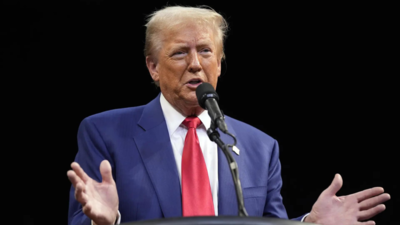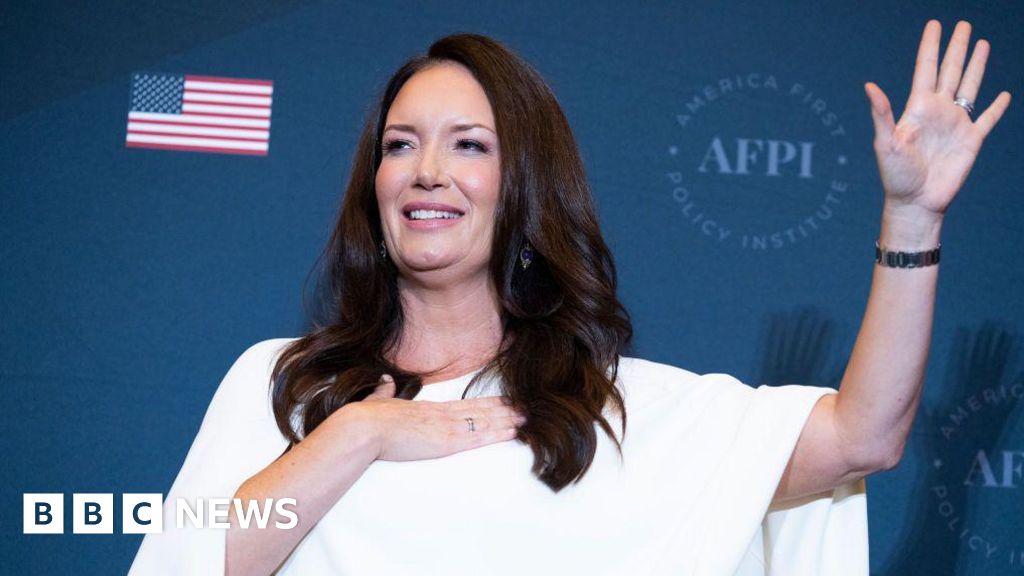
Donald Trump (File photo)
As the 2024 presidential election enters its final weeks, Donald Trump is ramping up his use of vulgar and inflammatory language at campaign rallies. During a Pennsylvania event this weekend, the former president opened with a shocking anecdote about the late golf legend Arnold Palmer's genitalia. Trump’s crude remarks about Palmer's masculinity were followed by insults directed at his Democratic opponent, Kamala Harris.
These outbursts have stirred controversy but also energized his core supporters, raising questions about whether this unfiltered approach is an intentional election strategy to galvanize his base, particularly younger male voters.
Why it matters
As per a Politico report, Trump’s use of foul language and crude humor is nothing new, but the frequency and intensity of his remarks in the final stretch of the 2024 campaign are noteworthy. The former president, who has long embraced controversial rhetoric, seems to be doubling down on hypermasculine, inflammatory comments, a tactic that appears designed to appeal to male voters, especially those disillusioned with traditional political correctness. At the same time, his behavior could alienate key demographics, particularly suburban women and moderate Republicans, who might be turned off by his lack of decorum.
As Trump faces off against Kamala Harris, who could become the first female president of the US, the contrast in tone and demeanor between the two candidates is stark. Harris has largely avoided engaging directly with Trump's personal attacks, instead focusing on portraying him as unfit for office. Trump’s supporters, however, often praise his directness and authenticity, seeing his crude humor as a refreshing alternative to what they view as the sanitized language of traditional politicians.
The big picture
Trump’s controversial remarks this weekend highlight a broader theme in his campaign: an emphasis on hypermasculinity and populism. During his Pennsylvania rally, Trump shared a 12-minute story about Palmer that included graphic details about the golf legend’s body, eliciting laughs from the crowd.
“Arnold Palmer was all man...This man was strong and tough, and I refused to say it, but when he took showers with the other pros they came out of there, they said ‘Oh, my God. That’s unbelievable,’” Trump said.
He followed this with a vulgar insult aimed at Kamala Harris, calling her a "shit vice president," to the delight of his audience. This pattern of using locker-room talk to energize his base has become a hallmark of Trump’s rallies, particularly in battleground states like Pennsylvania, where he is courting working-class voters and younger men.
In a podcast last week, Trump made similarly crude remarks, using a slang term for male genitalia to describe the downfall of disgraced movie producer Harvey Weinstein. These moments are not accidental; they are part of a broader strategy to appeal to male voters who may feel disillusioned by political correctness and progressive movements. By positioning himself as an outsider who "tells it like it is," Trump is tapping into frustrations among voters who feel left behind by cultural shifts in the country, the Politico report said.
However, while these comments may energize his base, they also risk deepening the gender gap in the 2024 election. Polls suggest that Trump’s aggressive, masculine rhetoric appeals more to male voters, while Harris is performing strongly with female voters, particularly in suburban areas. The result is shaping up to be one of the largest gender divides in modern political history, with both campaigns focusing heavily on turnout from these key groups.
What they are saying
Kamala Harris and other Democratic leaders have seized on Trump’s vulgar remarks to argue that he is unfit for the presidency. Harris responded to Trump’s attacks by saying, “I do believe that Donald Trump is an unserious man. And the consequences of him ever getting back into the White House are brutally serious.” Harris has framed Trump’s behavior as emblematic of a broader pattern of instability and recklessness, suggesting that his return to power would be dangerous for the country.
Arnold Palmer’s daughter, Peg Palmer Wears, also reacted to Trump’s comments about her late father. In an interview with the Associated Press, she expressed disappointment but not outrage, saying, “I think it was a poor choice of approaches to remembering my father, but what are you going to do?” Wears added that while she wasn’t upset, she felt Trump’s comments didn’t honor her father’s legacy appropriately. She noted that her father, who passed away in 2016, had believed strongly in the Republican Party, but stopped short of saying whether she would vote for Trump in the upcoming election.
On the Republican side, reactions have been mixed. Some party leaders, like House Speaker
Mike Johnson
(R-La), have avoided directly condemning Trump’s remarks, with Johnson telling CNN, “He says things that are off-the-cuff.” Other Republicans, including Gov. Chris Sununu (R-N H), have been more critical, saying Trump’s language, particularly his profanity-laced attacks on Kamala Harris, is unhelpful and distracting. However, Sununu also noted that such remarks are unlikely to sway voters one way or the other, adding, “It’s just par for the course.”
Between the lines
Trump’s frequent use of locker-room talk and crude humor may be a calculated move to solidify his support among male voters, particularly young men who have become a key demographic for the Republican Party. Over the past few years, Republicans have made a concerted effort to court younger male voters, many of whom feel alienated by progressive social movements and the perceived political correctness of the left. Trump’s crass language and unapologetic style resonate with these voters, who see him as a "real" candidate willing to say what others won’t.
For Trump, his emphasis on masculinity and strength is not new. In the 2016 election, he used similar tactics to portray himself as the alpha male candidate, contrasting himself with Hillary Clinton, whom he frequently belittled with sexist and derogatory remarks. His latest comments about Arnold Palmer and Kamala Harris are a continuation of this strategy, positioning himself as a strong, decisive leader who isn’t afraid to break the rules.
This strategy could be effective in energizing Trump’s core supporters, but it also risks alienating moderate Republicans and undecided voters, especially women. The gender gap in this election is expected to be historic, with polls showing a significant divide between male and female voters. Harris, who has focused on presenting herself as a competent and serious leader, may benefit from Trump’s controversial remarks, particularly among women who find his behavior off-putting.
What’s next
As the November 5 election approaches, both candidates will continue to sharpen their closing arguments. For Trump, this likely means more rallies filled with unfiltered language and humor aimed at energizing his base. His team hopes that by appealing to male voters, particularly in swing states like Pennsylvania, he can overcome the deficits he faces with women and suburban voters.
Harris, meanwhile, will likely continue her strategy of focusing on Trump’s character and fitness for office, hoping to persuade undecided voters that his behavior makes him unfit for a second term. She will also seek to turn out women and moderate voters, who are critical to her path to victory.
The final weeks of the campaign are set to be a battle of contrasting styles: Trump’s brash, masculine rhetoric versus Harris’s more reserved, policy-focused approach. The outcome could hinge on which message resonates more with voters in key battleground states.
(With inputs from agencies)

 1 month ago
16
1 month ago
16










 English (US) ·
English (US) ·